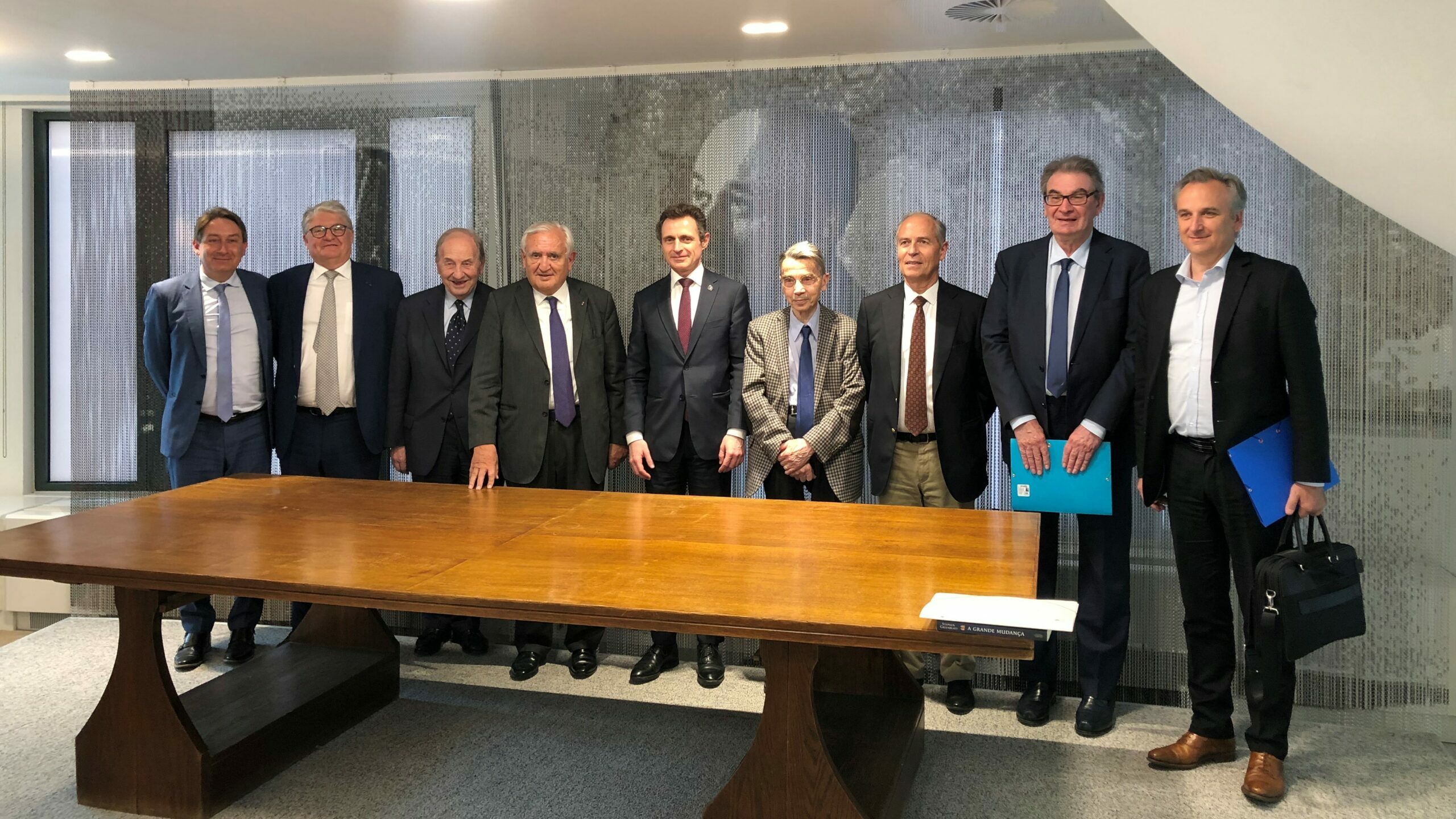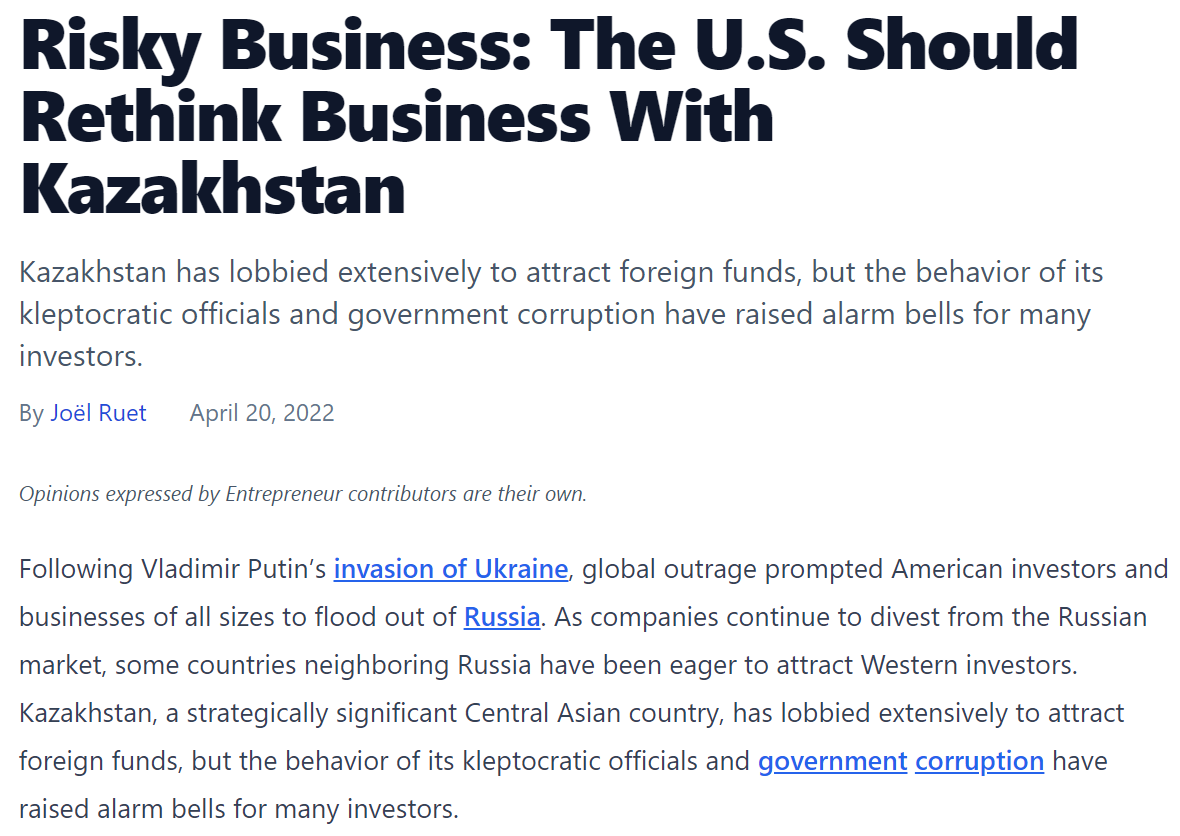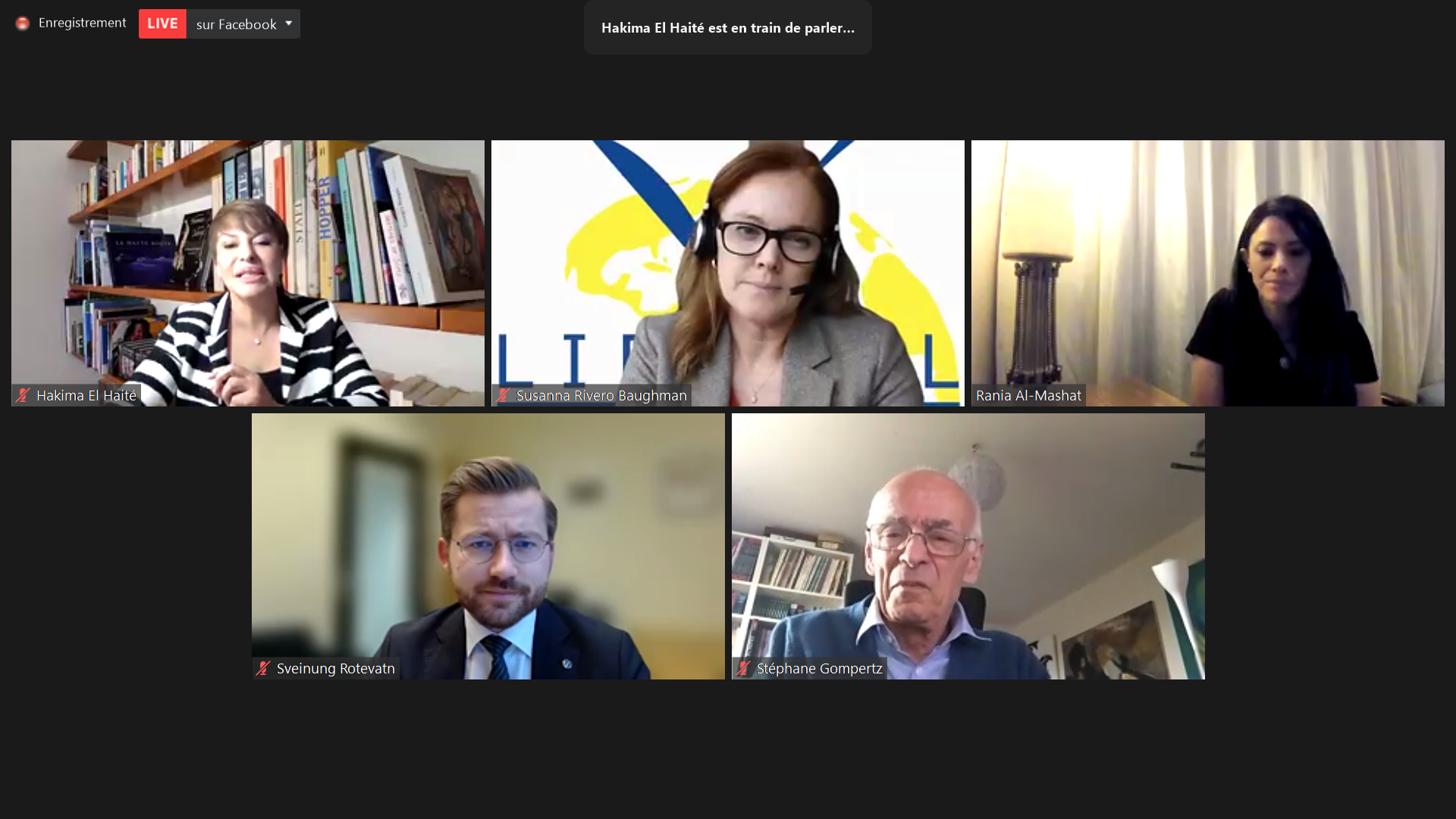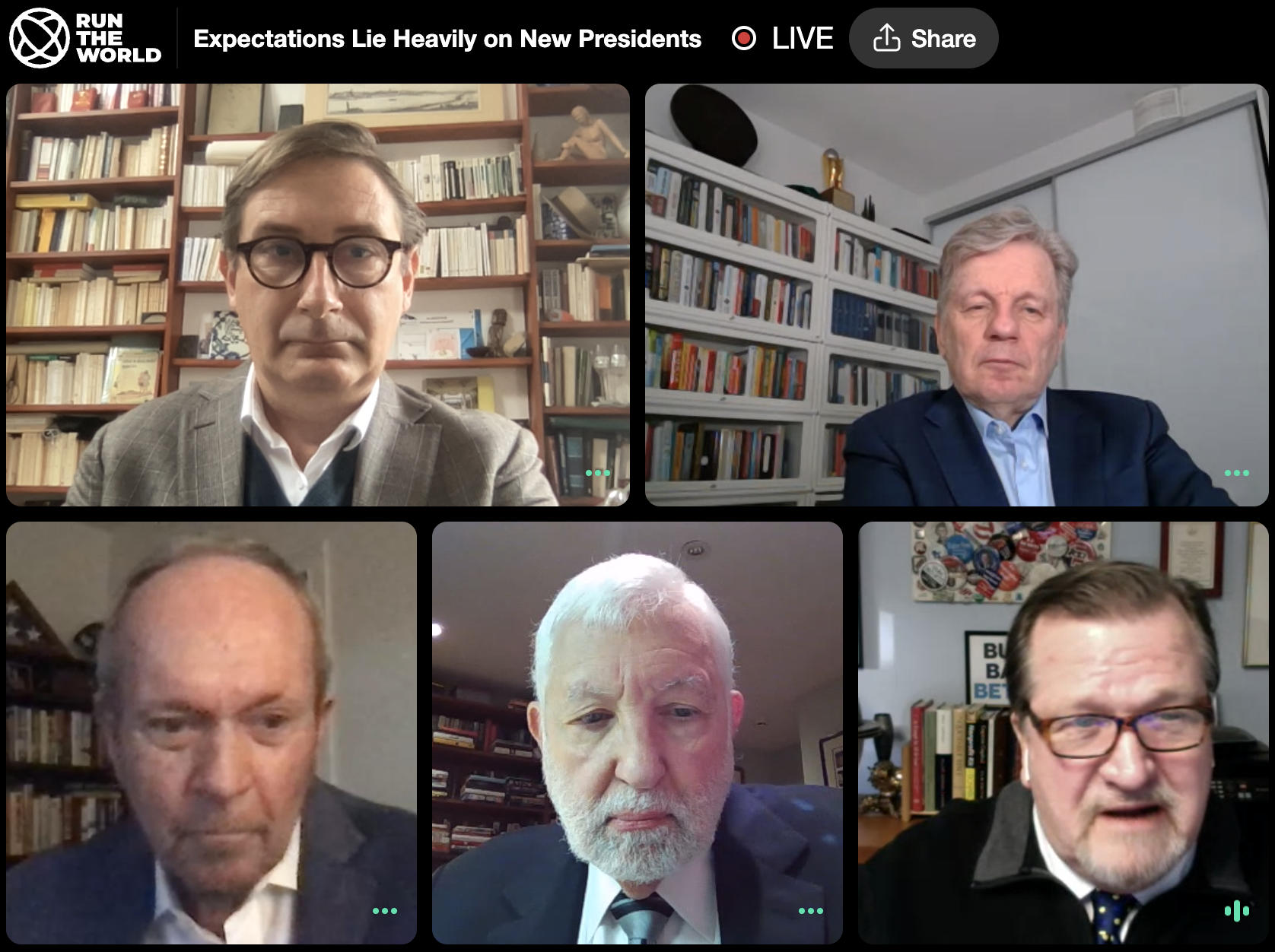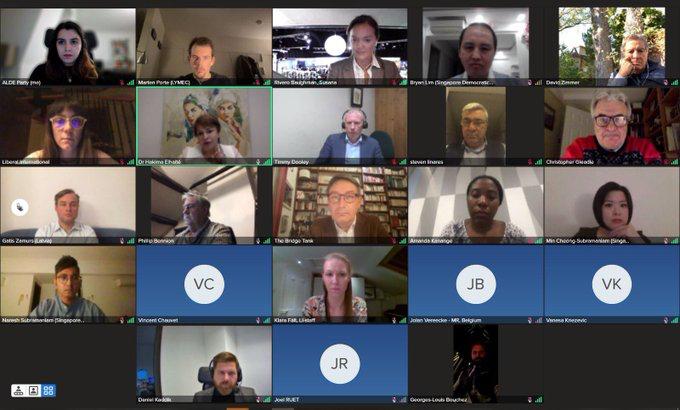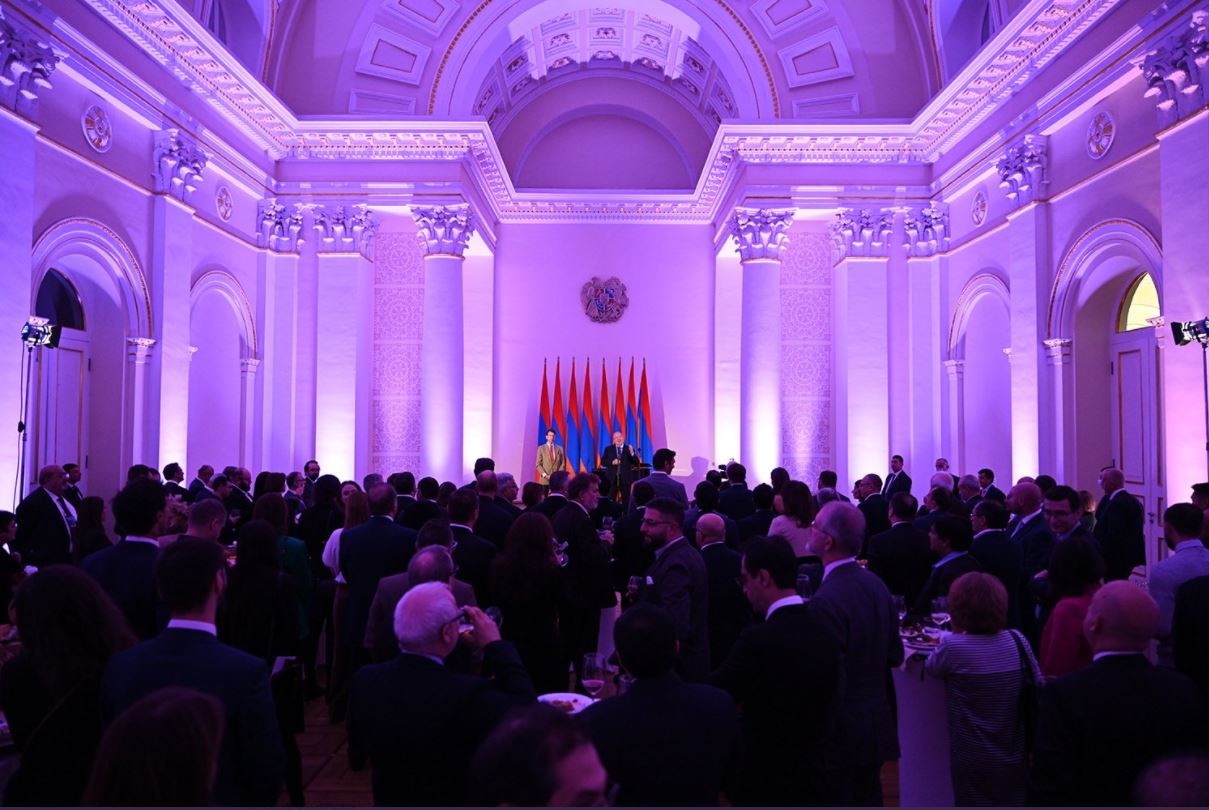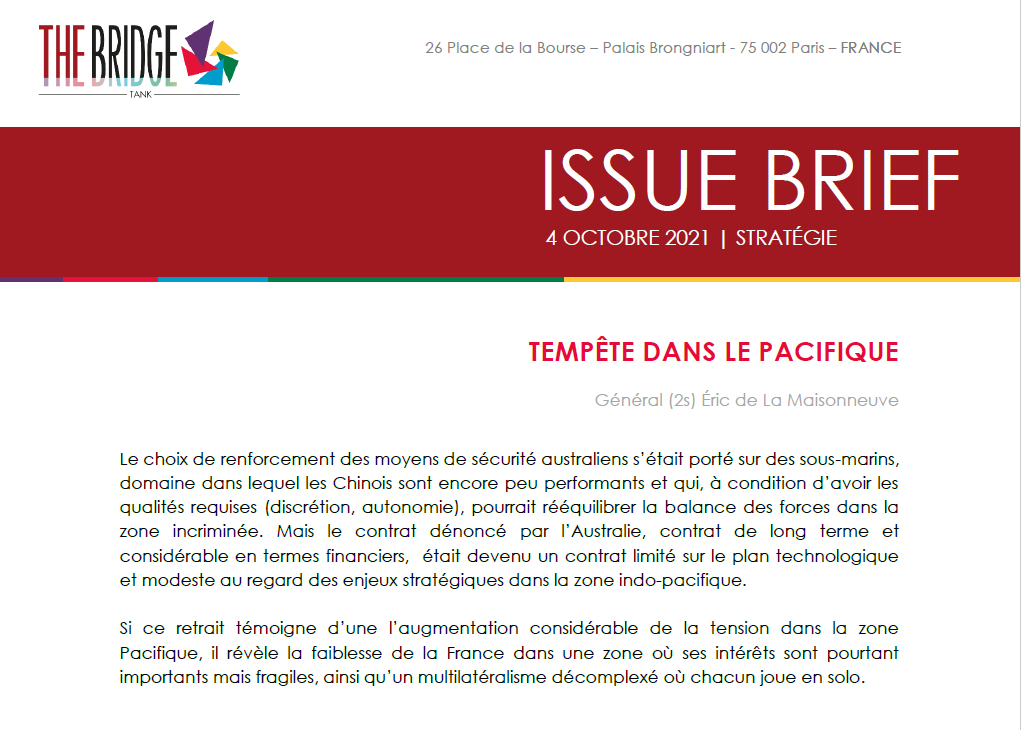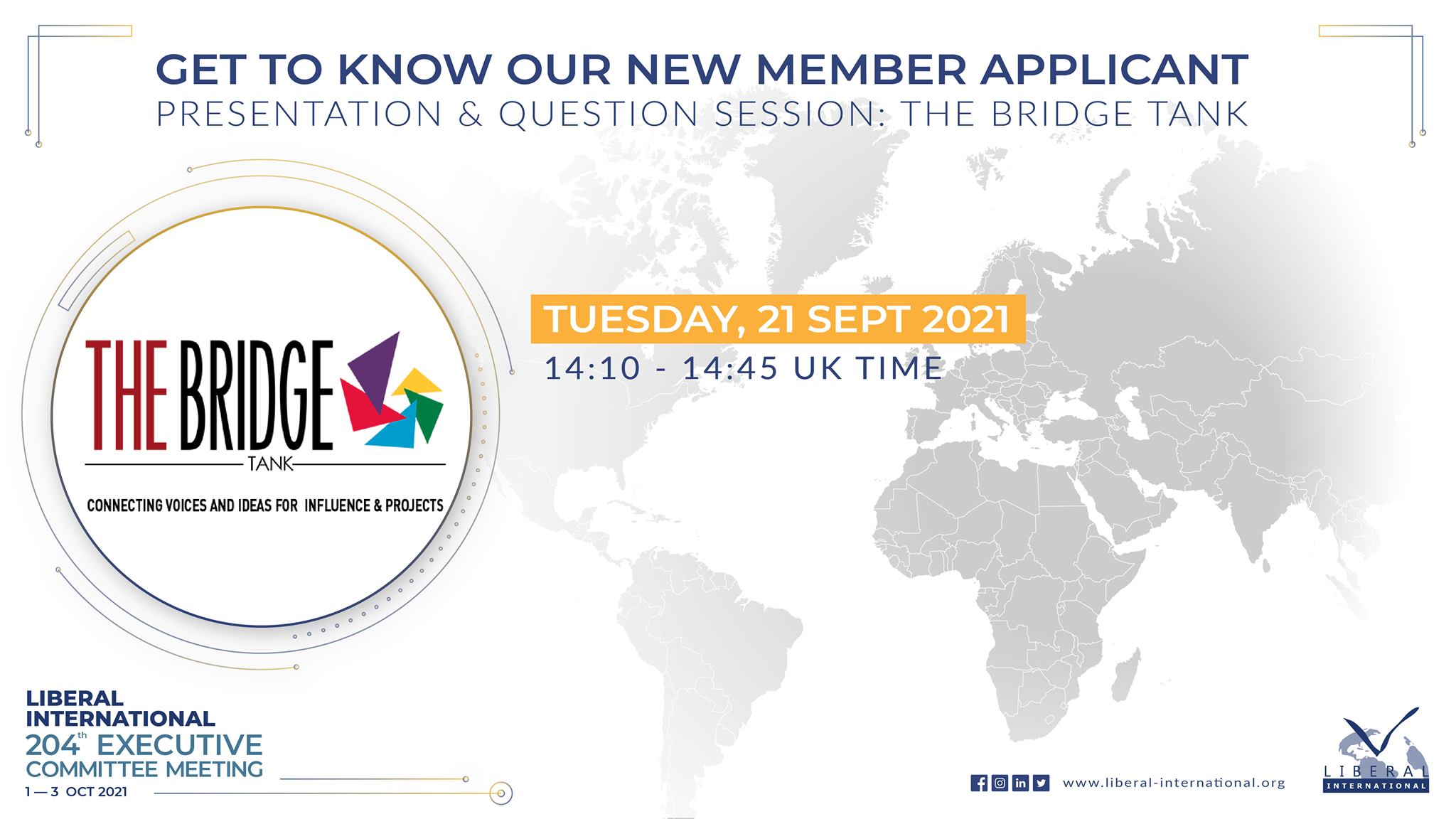Engaging with the EU Commission on strategic autonomy
On 10 May 2022, The Bridge Tank joined a study trip to Brussels that met with European Commissioner Thierry Breton among others. The study trip was organised by the Prospective and Innovation Fondation (PIF) and its chairman Jean-Pierre Raffarin, former Prime Minister of France. The Bridge Tank was represented by Joël Ruet and Philippe Coste, respectively chairman and board member of the organisation.
This study trip on the subject of European sovereignty and autonomy in the face of global pressures and tensions consisted of five interviews with high-ranking EU officials and researchers. The study trip’s delegation met with Laurence Graff, Head of Unit at the European Commission’s Directorate-General for Climate Action (DG CLIMA), with two representatives of the Belgian think tank EGMONT – Royal Institute for International Relations, with Ambassador Philippe Léglise-Costa, Permanent Representative of France to the EU, with Denis Redonnet, Deputy Director-General of the Directorate-General for Trade at the European Commission, and finally with Thierry Breton, European Commissioner for the Internal Market.
The Bridge Tank is pleased to publish the report of this day in Brussels (a more detailed report is available in French).
Commissioner Thierry Breton – The balance of power and geopolitics of the internal market: towards stronger regulations and value chains
Recent crises have revealed weaknesses in Europe’s balance of power with China and the United States. According to Thierry Breton, de-globalisation is impossible today and certain dependencies are bound to persist (e.g. rare earths and semi-conductors). Rather than establishing European ‘sovereignty’, we need to establish a balance of power based on the size of the European continent to ensure relative autonomy and the ability to choose and defend ourselves.
The EU will rigorously enforce its rules and interests against the GAFAs and multi-national technology companies, without any possibility of extraterritoriality, with the Digital Market Act and the Digital Service Act setting out the rules for access to the European market.
More generally, the Commission has in recent years assessed the weaknesses of value chains in each critical sector (e.g. batteries, semi-conductors, lithium, rare earths). It has now become impossible to reason on a country-by-country basis within the EU, and ecosystems and regulatory approaches need to be developed at continental level. For lithium, for example, refining capacity must be developed, as the continent has sufficient lithium resources.
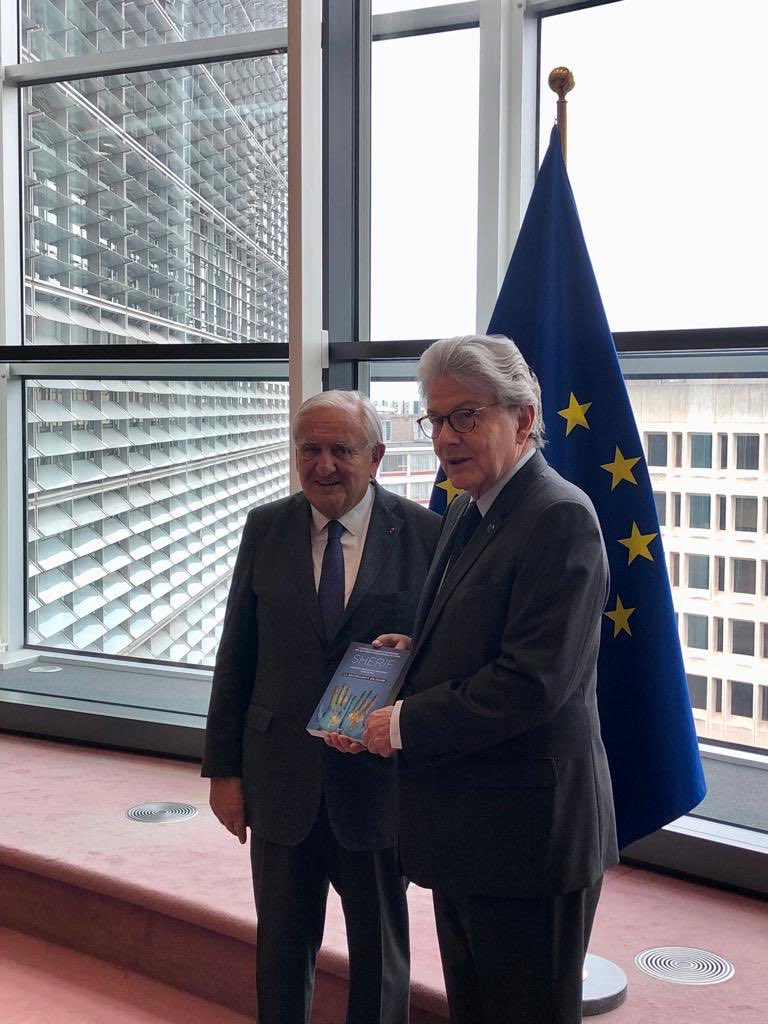
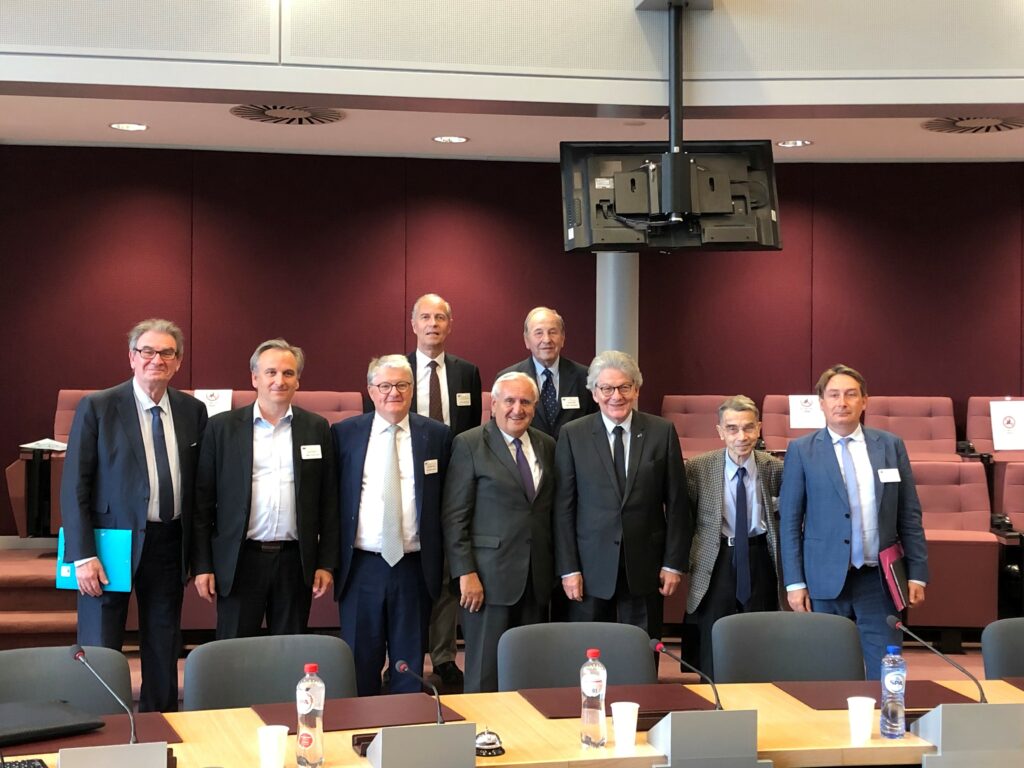
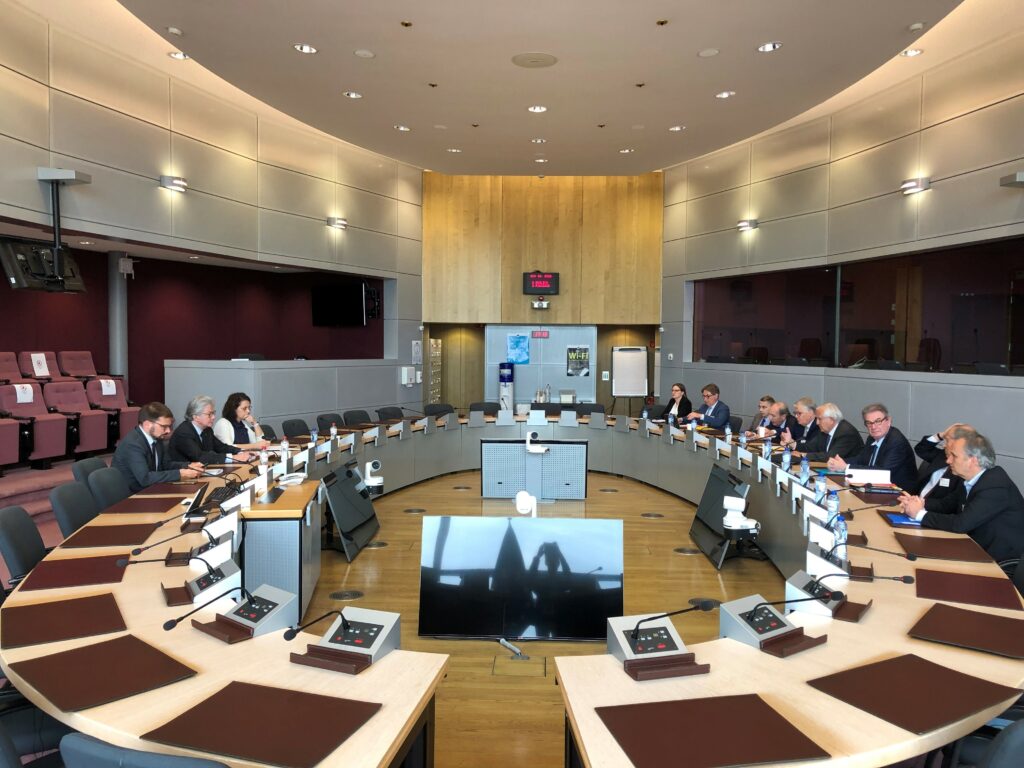
DG CLIMA, Laurence Graff – European climate policy and ambitions: carbon neutrality and energy sovereignty
According to Laurence Graff, Head of Unit at the Directorate-General for Climate Action (DG CLIMA), European climate policy is now of both national and international interest. It was in 2008, during the French Presidency, that the first climate-energy package was adopted. This paved the way for European leadership on environmental issues, which has produced results both in the Member States and internationally. All this was made possible by a differentiated approach and concrete solidarity through various European funds. The European Commission (EC) pays close attention to support mechanisms for climate vulnerability. This was illustrated in 2022 by the creation of a Social Fund for Climate. But the climate issue is also a strategic one, encompassing issues of innovation and international competitiveness.
According to Frans Timmermans, EC VP, the Green Pact represents a new growth strategy, with issues of support and management of economic transition for certain sectors, by strengthening the industries of the future and supporting those in difficulty. The aim is for Europe to become the first carbon-neutral continent, a vision that is more relevant than ever given the current need for energy sovereignty. This concern is also at the heart of the EC’s RePowerEU plan, revealed on 18 May 2022.
EGMONT – The Royal Institute for International Relations: European global power and the balance of power
After the financial and migration crises of the past 20 years, the European Union seemed to have emerged weakened and with a sense of unfinished business. The crises caused by COVID-19 and the war in Ukraine have enabled strong and irreversible progress to be achieved. Although there are difficulties in developing a common diplomatic position, particularly with the risk of a rift in the position of the 27 on the sanctions imposed on Russia, the French Presidency’s proposals aimed at making the Union a global power are coming to fruition. This is made possible in particular by the changing position of Germany, whose current government is proving to be more European than its predecessors, open to variable-geometry advances towards closer cooperation. Egmont is seeing positive signs in Franco-German relations.
During the exchanges between the various participants in this meeting, the question of the balance of power between the EU and Beijing once again found itself at the heart of discussions. Although China has agreed to grant European groups considerable financial margins, a change of course on the part of the Chinese authorities could seriously weaken these companies. The European project must necessarily include a strong position in relation to powerful countries and encourage a union of democracies. This position is reflected in the EU’s continental balance of power vis-à-vis China, particularly in terms of trade relations, where the Union has already indicated its intention to rebalance the balance of power. According to Egmont, European economic power is now beginning to assert itself primarily through the normative power of the European market.
Ambassador Léglise-Costa – European dynamics in response to present and future crises
The exchange session with Ambassador Philippe Léglise-Costa, Permanent Representative of France to the EU, addressed the current dynamics in the common strategy of the European Union.
According to Ambassador Léglise-Costa, the evolution of the German position is particularly notable, a finding similar to that of the Egmont Institute. Faced with the various crises that have hit the continent in recent years, Germany has taken strong decisions characterized by greater openness to common concerns. This contrasts with a more German-centric approach in the past. Beyond the conceptual, the Franco-German tandem has come out strengthened. Germany’s support for the French presidency made it possible to vote on the text on the reciprocity mechanism in public procurement. As the text on subsidies to state-owned enterprises is also advancing, it will contribute to rebalancing the balance of power with countries like China.
According to Ambassador Léglise-Costa, the European position in terms of defense strategy must now progress and encourage the EU to re-equip itself in order to reduce its dependence on the United States, if only because of the risk of political change in US.
DG TRADE, Denis Redonnet – Open strategic autonomy and economic cold war
The European Union is now emerging from an era of all-out free trade agreements, which made it the jurisdiction with the greatest amount. The approach has now changed, and so have the issues of economic integration, to focus on an approach of “open strategic autonomy”. This approach intends to continue to reap the benefits of openness, while working to rebalance the situation to counterbalance the practices of certain economic partners.
The crises facing the EU today are generating increased demands for precaution and protectionism. These tendencies towards protectionist withdrawal can be seen in the EU’s southern neighbourhood in the implementation of agreements to replace European imports with local products. Other types of difficulties encountered today concern the distortions of global competition linked to Chinese state capitalism, which generates distortions around the cost of capital and the system of state-owned enterprises. In the face of this, it has to be said that the rules of the World Trade Organisation (WTO) do not allow for good governance of these practices. This partly explains the withdrawal of the United States from this system and the illegal tariffs from the WTO’s point of view that the US and China are now imposing on each other. These practices are undermining the dispute settlement system, which was one of the most advanced mechanisms for international governance. Although the 25 member countries of the WTO (including China) have set up an alternative system, the absence of the United States from the WTO reform process renders any EU-led efforts to reform futile.
Russia’s invasion of Ukraine required a rapid response and adaptation on the part of the EU. In economic terms, this is illustrated by the speed with which the first five packages of sanctions were put in place. In terms of exports, 25% of EU and G7 exports to Russia are under sanctions. This strategy is undoubtedly part of a medium- to long-term cold war, and will undermine and degrade Russia’s industrial potential in the medium term. Economic and commercial relations are being used to leverage power. The United States is also sending out signals that it could do the same to China, as it had begun to do to the Chinese telecoms giant Huawei and is now doing to Russia. Such an extension to the whole of China would have gigantic consequences.
Conclusion
As the Prospective and Innovation Foundation noted after the trip, “the international climate continues to deteriorate dangerously, but the Union is responding well, in particular by expressing the idea of sovereignty in all its forms”.
OpEd: Risky Business: The U.S. Should Rethink Business With Kazakhstan
An article written by our President, Joël Ruet about Kazakhstan’s current and growing challenge to fight corruption that undermines foreign investment and the country’s socio-economic development, was published in the media Entrepreneur.com. He warns that “despite the Kazakh government’s public campaign to attract foreign investors […] it will need to implement fundamental changes, and that starts with taking anti-corruption seriously and honoring agreements with foreign investors. Until then, U.S. investors should rethink the risk of doing business in Kazakhstan.”
The Bridge Tank at the BOAO Forum for Asia 2022: Promote Energy Integration and Build Green World
The BOAO 2022 Forum was held from April 20 to 22 in a hybrid mode, aiming to conduct an open dialogue in a post-COVID world and on the prospects of common development in the world of tomorrow.
Since 2018, The Bridge Tank has participated in the annual “Chinese Davos” event. Our President, Joel Ruet spoke at a high-level panel in the presence of Mr. Ali Obaid Al Dhaheri, Ambassador of the United Arab Emirates to China, Mr. Baodong Li, Secretary General, BOAO Forum and former Vice Minister of Foreign Affairs of China, Mr. Mr. Jizhen Liu, Academician of Chinese Academy of Engineering and Director of State Key Laboratory of Alternate Electrical Power System with Renewable Energy Sources, Mr. Hailiang Song, President of China Energy Engineering Group Co, Mr. Jianhua Hu, President of China Merchants Group and Mr. Haiping Xiang, Chief Engineer of China National Energy Administration.
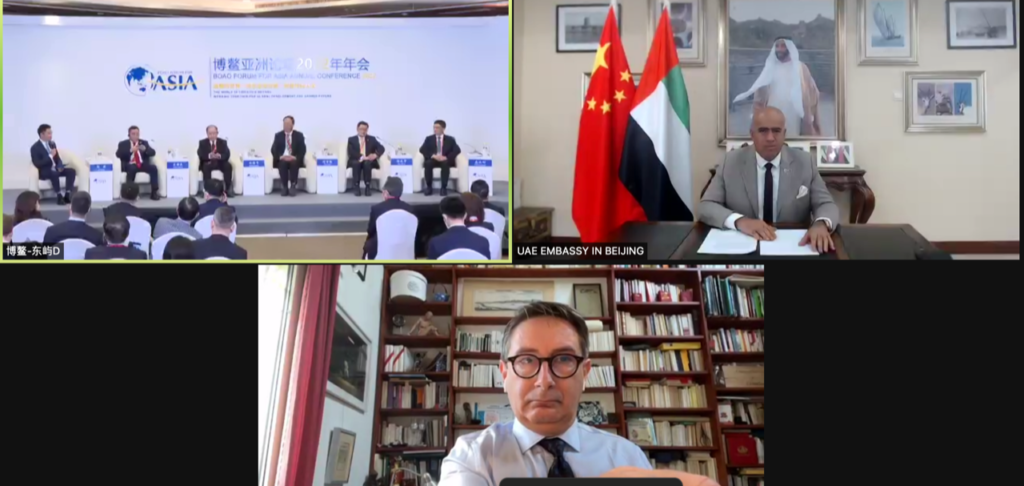
In his speech, Joël Ruet spoke about the global issues related to energy integration and trajectories. He stressed the importance of “deep decarbonation technologies” in accelerating net zero emissions by 2035-2040. Until then, he added that each country or territory will have a role to play to have its own “transition trajectory”, not only adding renewable energies but also integrating them into the networks with a more rational and efficient use.
Joël Ruet addressed the issue of adaptation, which must no longer be looked separately from other issues. He illustrated his remarks through the example of carbon sinks, which have be created from optimized ecosystems everywhere, not only in forests, but also in savannahs or mangroves.
Dr. Ruet also demonstrated that energy trajectories are already low-carbon, which is particularly the case for Africa and most of the G77 countries. It is important that these trajectories are recognized as such and therefore funded by the North and that technology and know-how transfers are funded accordingly.
In response to the question of how to implement global support to energy trajectories of the global south, the President of The Bridge Tank proposed two solutions: first, allow the South to manage itself with more funding to create local champions, keep the gas trade open to them, and ensure that their carbon sinks are recognized as an incentive to develop them; and second, enable their local financial entities to play a larger role by recognizing that “risks” are over rated there in comparison to actually high profitability.
As in the 2021 edition, Joël Ruet was one of the three French speakers, representing the circle of Think Tanks, alongside Jean-Pierre Raffarin and Henry Giscard D’Estaing, who respectively represented the political and economic worlds.
Read here the agenda of the BOAO Forum 2022.
Side event “From COP 26 Glasgow Commitments to COP 27 Egypt Opportunities: The MENA perspective Confirmation”: participation of our Board Members
On the occasion of the first edition of the UNFCCC MENA Climate Week, from 28th – 31st of March, hosted by the Government of United Arab Emirates, Liberal International, of which The Bridge Tank is a member has organized a virtual side event on 29th of March named: From COP 26 commitments to COP 27 opportunities: The MENA perspective.
The purpose of this event is to tackle the challenges and opportunities stemming from the shared commitment that was agreed at COP 26 in Glasgow, while looking ahead at COP 27 Egypt as an opportunity to increase ambitions. Moderated by the President of the Liberal International, UN High-level climate champion and our Board Member, Hakima El Haite asked a series of questions to each of the speakers.
Among them, our Board Member, Stéphane Gompertz was present in his capacity as former French Ambassador in African countries and Special Envoy for COP 21. He was first asked to give his perspective for the COP 27.
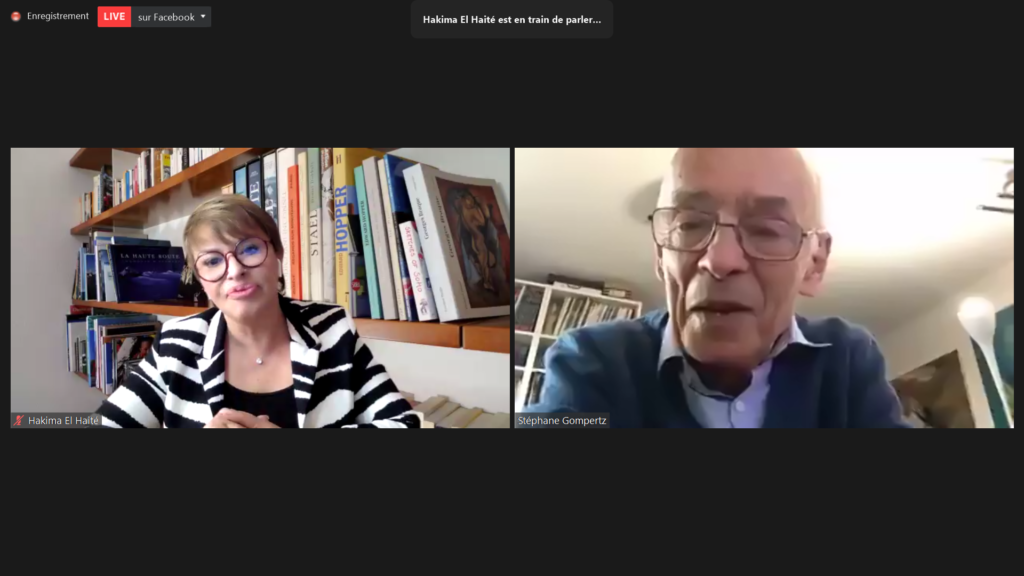
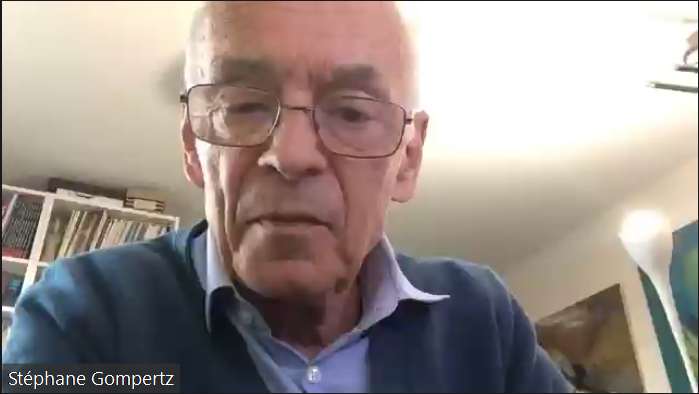
His vision for the next Conference of the Parties reflects the difficulties of raising the climate ambition and maintaining efforts in a context of tensions (COVID-19, War between Ukraine and Russia and War in Yemen). The different crises and current wars shift the priorities of the states and public spending. Money is spent more on wars than for climate action. The political ambitions aren’t now and won’t be as high as it was during the COP 21 and the COP 22. The COP 27, will take place in Sharm El-Sheikh in Egypt, will have the difficult task of pushing the Parties’ effort to:
- Help to pursuit government and public opinion to have a look in the future.
- Push for solutions.
- Continue to promote good practices in the field of adaptation.
Stéphane Gompertz then explained what should be done to keep the 1.5°C? He said that we have to look ahead. States act in the short and long term. Energy is a good example. In a short term basis, countries will use more fossil fuel. In a long term basis, we will see the positive effect on energy policy. For instance, France undertakes nuclear, without it, it won’t be enough effort to commit climate targets. However, the question of nuclear power is again debated in France in this electoral and the War between Ukraine and Russia context. But it is important to measure the risks over time: living with temperatures above 2-3°C or living with an energy mode low in CO2 emissions.
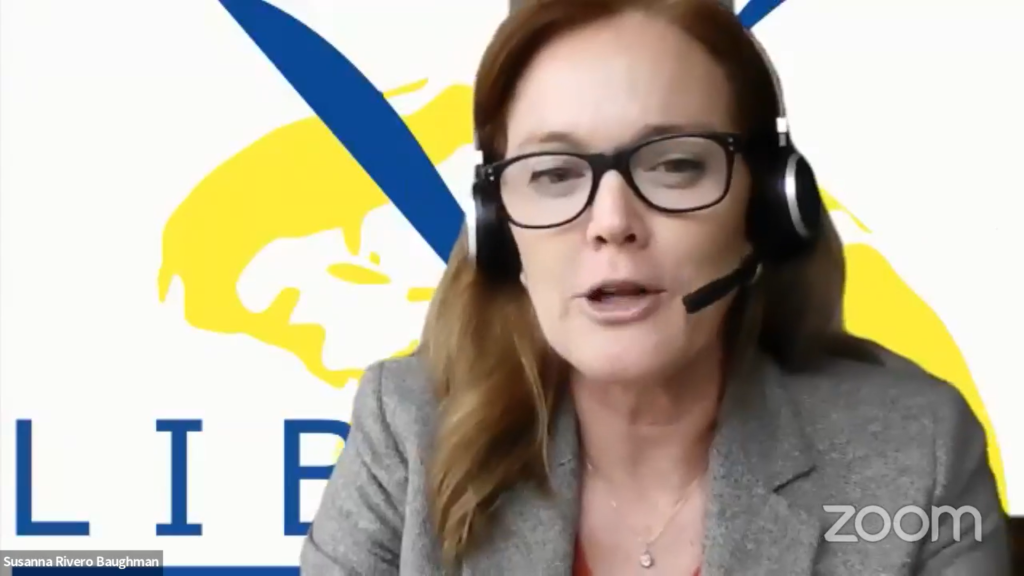
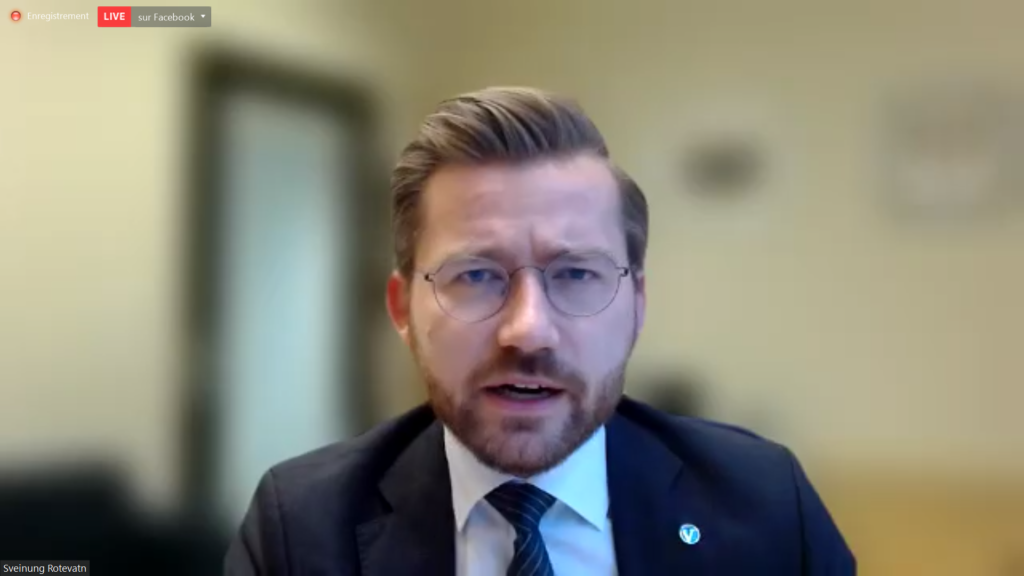
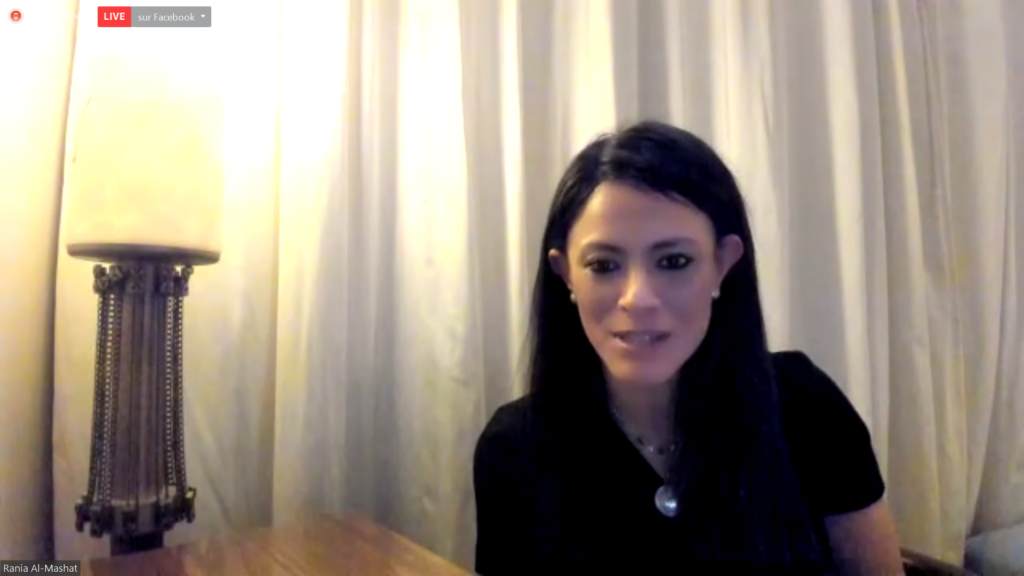
Mrs. Susana Rivero Baughman, who is the Foreign affairs and Cooperation Adviser at the Secretary of Climate Action, Government of Catalonia gave a short presentation of International Liberal’s action to Climate Justice Committee, which has recently adopted a policy paper “Liberal Perspectives on Climate Justice”. Mrs Baughman expressed the lack of actions between climate change and human rights and this is what the International Liberal is willing to do by developing a Policy Lab and strengthening their presence in COPs and international forums. She finally highlighted that the COP 27 will offer plenty of opportunities for Africa.
Mr. Sveinung Rotevatn, who is Former Minister of Climate and Environment in Norway, developed an evaluation form the COP26’s achievements. For Mr. Rotevatn the COP 26 was a success for 3 reasons:
- Finish the Rule Book of the Paris Agreement, which constitutes a common framework among Parties.
- Increase ambition. Bigger emitting countries increase their ambitions, most countries raise their ambitions in NCDs, the USA are back in the Paris Agreement and we keep the 1.5°C objective alive.
- Sufficient commitment to increase finance: developing world can have confidence from the financing mechanisms. Industrial countries promise to double their climate finance. Pledges were made and it was well received from most developing countries.
He then explained that after 2 years of global pandemic, we have not lost the long term aspect of the climate crises. He then emphasized that Norway is one of the leading financiers and that the country will double its efforts in climate finance, notably for the preservation of tropical rainforest and mitigation and adaptation. He finally said that pollution tax is a necessary tool for a fair transition and support climate transition at country level, whereas at the global level, climate finance is a necessary tool.
Mrs Rania Al-Mashat, who is the Minister for International Cooperation of Egypt explained what will be the objectives and opportunities for the COP 27 in three messages:
- The COP 27 is going to be impartial, even though this COP is organized in Africa.
- Adaptation & resilience will be central and was one of the main outcomes from COP26.
- Commitment to actions.
Mrs. Al-Mashat emphasized the outcomes from Glasgow, asking open questions that will need to be answered at COP 27.The private sector’s role need to be increased: “We are going from billions to trillions”. It is also important to think about how can we operationalize what it have been pledge. How to derisk green investments? How can we create opportunities for the blended finance? There is not enough operationalize projects financed. How can we leverage from successful countries and to replicate them?
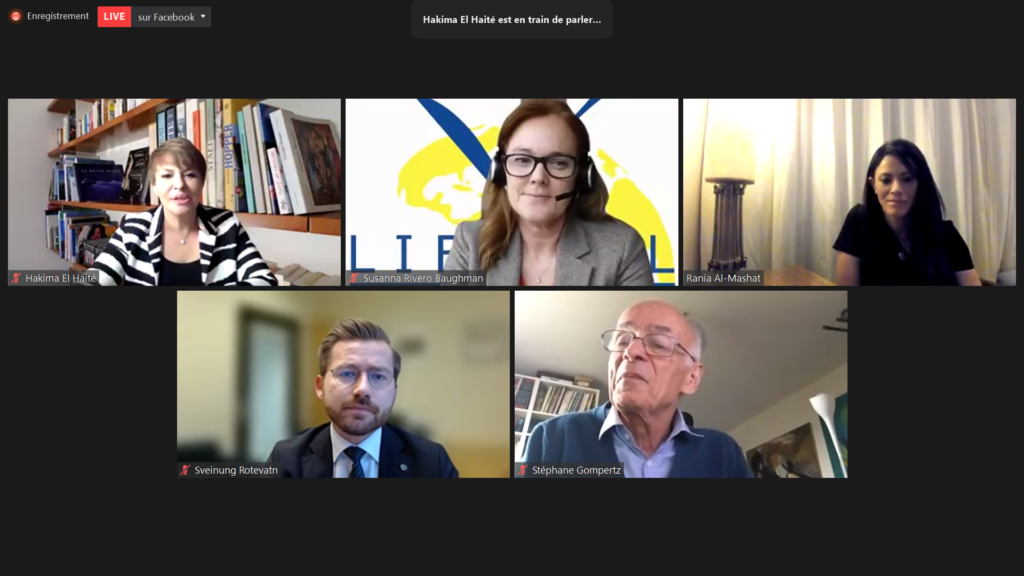
HORASIS 2022 USA – Biden’s first year, Ukraine, and EU’s leadership
During the 2022 Horasis USA Meeting, held March 4, The Bridge Tank participated in a conference on Joe Biden, the European Union and Ukraine, alongside Esko Aho, Former Prime Minister of Finland, Finland, Michael D. Brown, United States Shadow Senator, District of Columbia, USA, Yves Leterme, Former Prime Minister of Belgium, Belgium, Jed Rakoff, Senior Judge, United States District Court for the Southern District of New York, USA, and chaired by Jerry Hultin, Chair, New York Academy of Sciences, USA.
The discussion centered on the American president and his responsibility as the head of a leading democratic state, particularly in light of the war in Ukraine, as well as his potential future actions. How far will the Biden leadership go? What can we expect him to accomplish before the 2024 American elections?
Our President Joel RUET flagged that:
- Beyond US energy package, there ought to be some joint US-EU effort to quick land green finance,
- He called for joint technology programs and shared industrial platforms
- In line with Prime Minister Aho’s view that viewing NATO as an internal lose-win game between the US and the EU, Joel Ruet emphasized this situation has brought opportunities to jointly look at joint security issues, and have NATO evolve from defense to security,
- In reply to Jerry Hultin’s point on the view the Global South has on Russia’s assault to Ukraine and on China, Ruet mentioned that many African countries feel they have gained much of what they could from China and leveraged on this onto other countries, and that many of them now observe the new set of tools used on Russia, advising the “West” and notably the EU to engage into a conversation on these economic tools with its strategic partners in the South, not to alienate them, and, positively, to mutualise the treatment of the Russia-Ukraine crisis through real global tools,
- Lats but not least, echoing some concern by shadow Senator Brown, Joel Ruet offered that, even though they differ from one country to another due to history, so called ‘racial issues’ ought to be discusses more globally, not intra-societies.
Watch the full discussion here on our youtube.
COP26 Side Event – Liberal International’s Declaration for Climate
On 8 November 2021, The Bridge Tank, an Observing Member to Liberal International participated to an online roundtable event on the fringes of COP26, hosted by ALDE Party and Liberal International. Liberal policymakers and representatives from partner organizations congregated to share their views and exchange information on the ongoing United Nations Conference on Climate Change. The event was chaired by ALDE Party acting co-President Timmy Dooley and President of Liberal International Hakima El Haité.
The participants discussed the role of liberals when it comes to influencing the sustainability agenda in the next years, with a particular look at the first week of negotiations and an eye towards the second and final round of negotiations. Moreover, they also stressed the importance of the liberal voice, including younger generations, when it comes to building back better from the pandemic and generating jobs and growth as well as for the respect of rule of law across the globe.
At the end of the roundtable, the participants adopted a pledge calling on states to increase their climate ambitions. In this pledge, the participants called for stronger international cooperation to raise climate commitments and implement them, called on states to submit more ambitious NDCs, and urged for more technical and financial support to be granted to developing states to improve their capacity to take climate action.
“Protection of global biodiversity is also essential to combat environmental degradation and climate change. Our planet is currently facing its sixth mass extinction as a consequence of human activity, and it is disrupting ecosystems around the world, threatening our food production, and increasing risks of pandemics. We must take bold and rapid action now to change this, and therefore call on states to include biodiversity protection as a central part in their climate action plans.
The time for talk is now over – the only option left is action.”
Read the full pledge on Liberal International’s website.
The Bridge Tank contributes to the 2021 Armenian edition of the Summit of Minds
The 2021 Armenian edition of the Summit of Minds forum was held on the 23rd and 24th of October in the city of Dijilan, in the presence of Armenian President Armen Sarkissian. The Bridge Tank’s president Joël Ruet, attended this event alongside our board member Pranjal Sharma, who intervened on the panel: “A New Social Contract in the Time of AI, New Technologies & Covid-19”.
Joël Ruet notably exchanged with Andrey Kortunov, the Director General of RIAC (Russian International Affairs Council), during the panel “Global Transformations & Quantum Politics – Challenging the Unknown”.
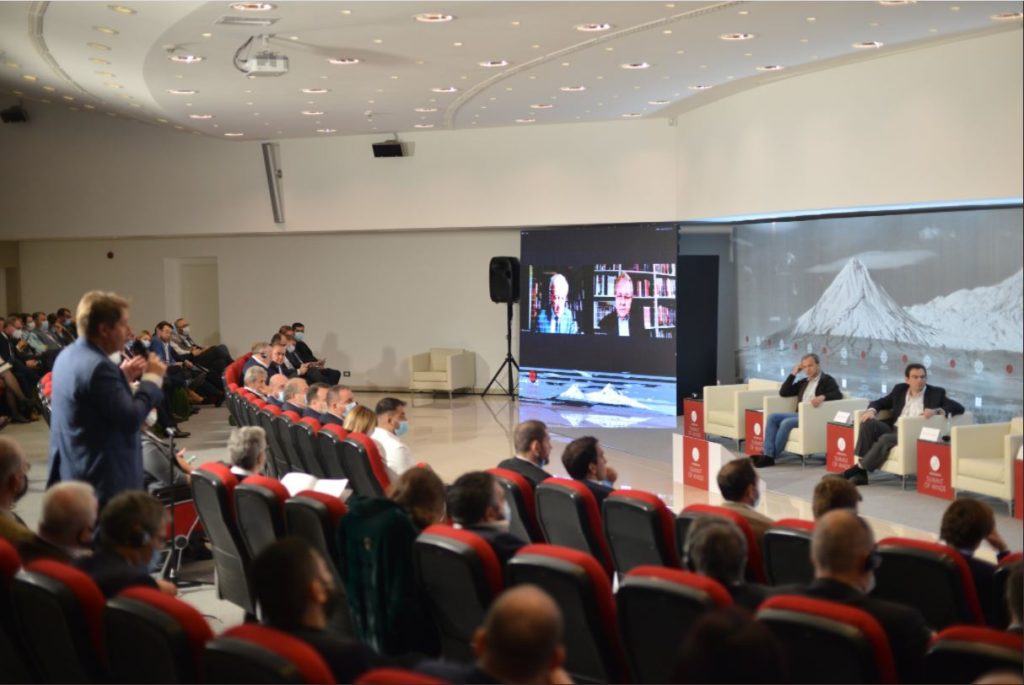
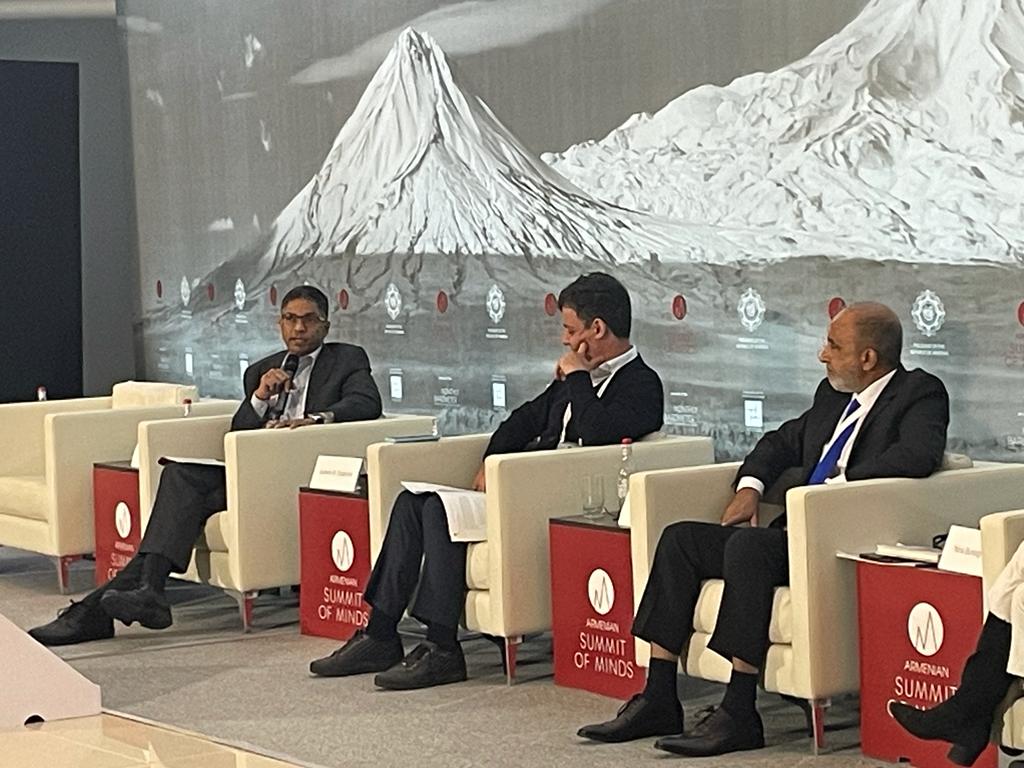
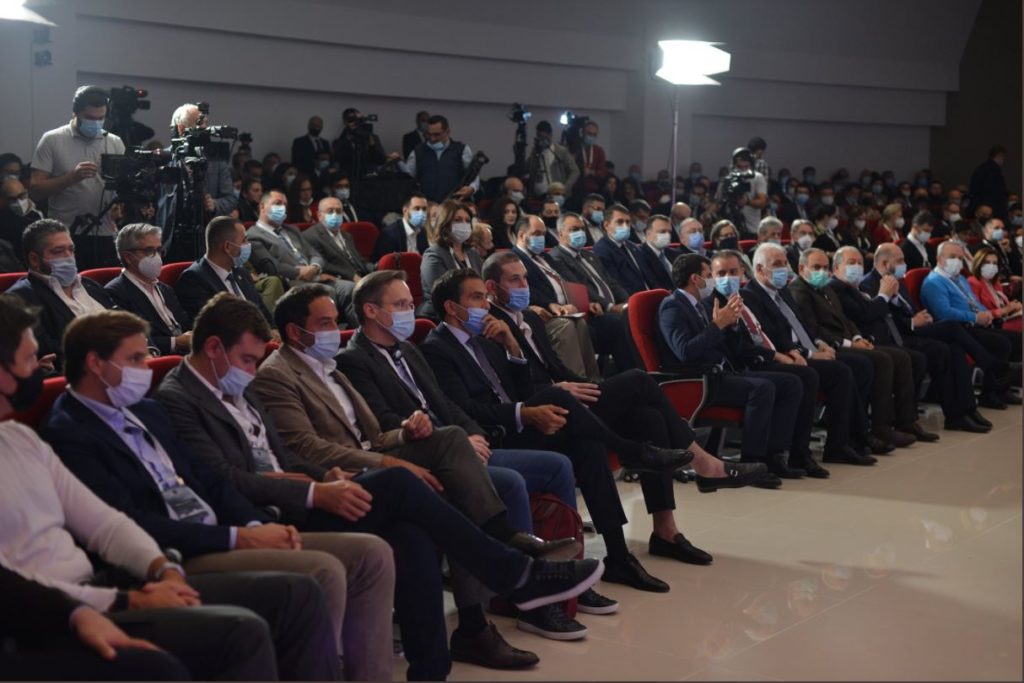
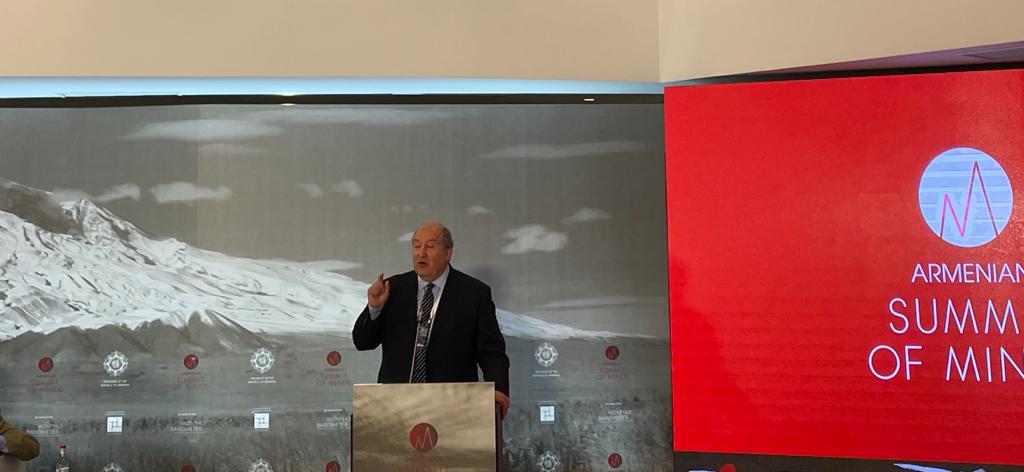
Issue Brief: AUKUS – A storm in the Pacific
On 15 September 2021, Australia terminated a contract with France to supply conventional submarines, in favor of a nuclear military-technology collaboration with the United States and the United Kingdom. This breach of contract highlighted the nascent AUKUS (Australia, United Kingdom and United States) military alliance, which was created in response to China’s growing power in the Indo-Pacific. This tripartite alliance has only served to add insult to injury in the current tense international context, as well as to exacerbate diplomatic relations between France and the United States.
In light of the visit to Paris on October 5, 2021, of the Secretary of State of the United States, Anthony Blinken, to try and appease the situation, The Bridge Tank published an analytical note, written by retired French General Eric de La Maisonneuve.
This issue brief is based on the idea that the contract denounced by Australia, a long-term contract and considerable in financial terms, had become a limited contract in technological terms and modest in relation to the strategic stakes in the Indo-Pacific zone. This Australian reversal reveals several key points:
- The worsening situation in the region, particularly in the South China Sea, the growing antagonism between China and the United States on trade issues, the impressive rise of the Chinese navy and its associated armaments, the multiple Sino-Australian tensions, all lead both the United States and Australia to review their arrangements.
- If, as is to be expected, events in the area precipitate, urgency will prevail and the USA will be forced to install their bases and nuclear submarines directly in Australia, even if it means renting or loaning some of them to the latter. Here again, it is likely that this future contract under the AUKUS umbrella will have difficulty seeing the light of day.
- France for its part should draw the consequences of this diplomatic-strategic fiasco in three directions:
- Revise its “foreign policy/defense policy” complex,
- Re-evaluate the European security pillar and its concretization through a Franco-German alliance under the French Presidency of the EU,
- Rethink in this context its systems of analysis of China to better anticipate its strategy and its actions.
Read the issue brief here (in French): 2021-10-04-IB La Maisonneuve
Liberal International 204th Executive Committee Meeting Elects The Bridge Tank as an Observing Member to LI
The 204th executive committee meeting of Liberal International took place online from 1 – 3 October 2021, with 132 registered delegates from 45 countries and 6 regions of the world. The Bridge Tank was one of think tanks to be officially welcomed to the LI family, demonstrating the growing appeal of liberalism outside of its traditional strongholds.
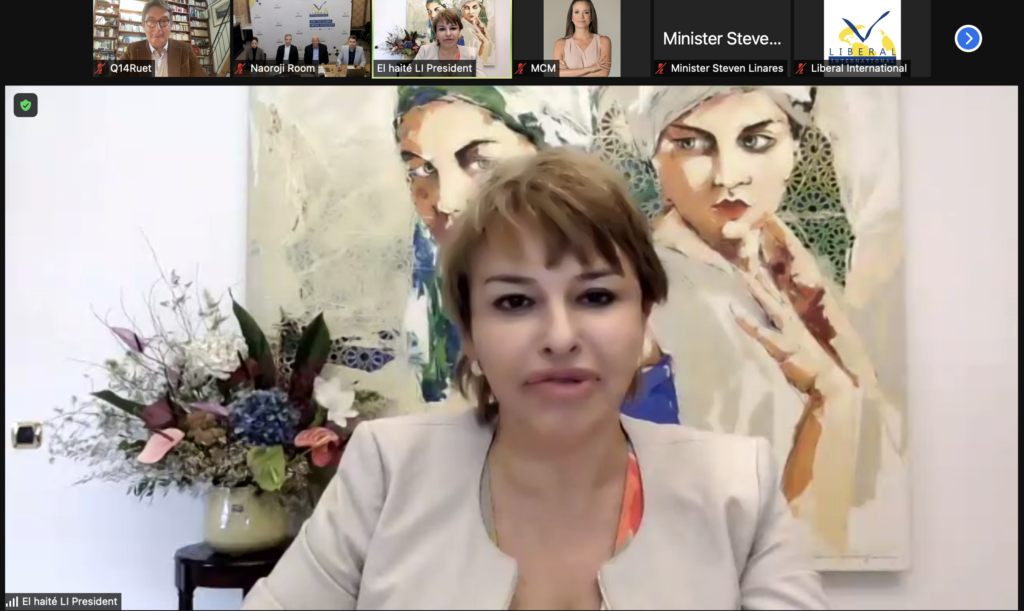
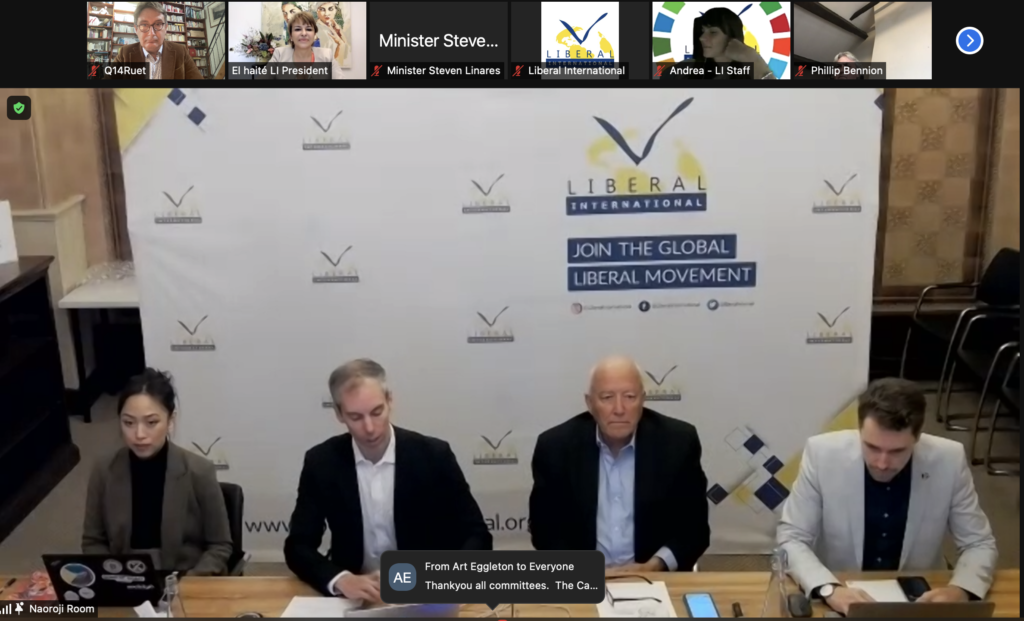
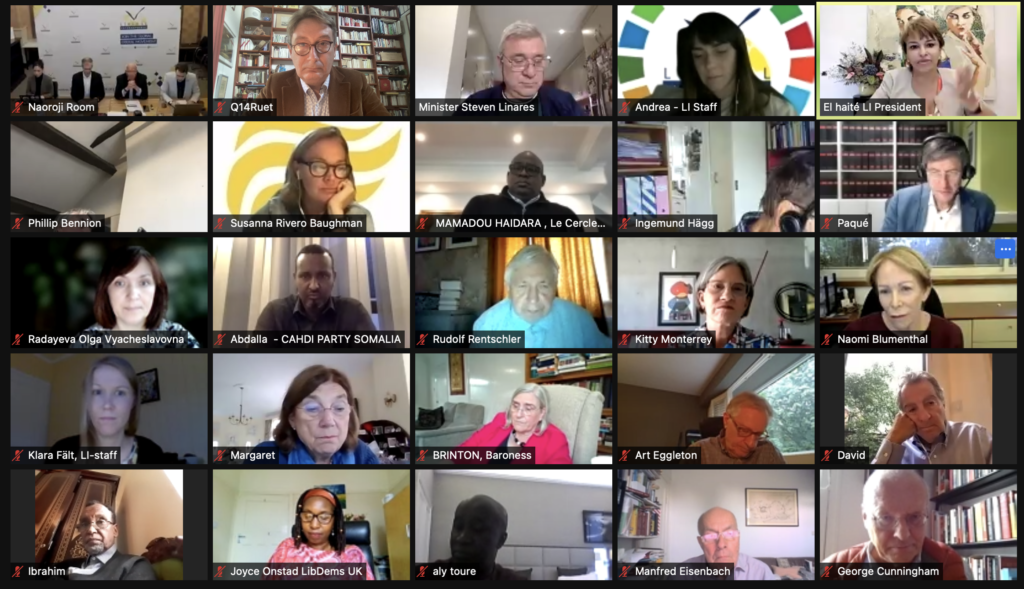
During this session, two policy papers were submitted by the LI climate justice committee and fair-trade working groups and eight urgency resolutions were adopted on urgent current global matters including the Covid-19 pandemic and climate change.
Read more about the 204th executive committee meeting on Liberal International’s website.


